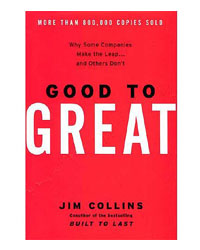Tonight I decided to watch a video I recorded on my video camera from the US Staff Conference back in '05. It was from a great talk by John Piper called "Captivated by God through the Gospel"
He divided his talk into 5 sections, and so I will give these notes in the same fashion.
- What is the Gospel?
- 2 Cor 4:3-7
- What makes the gospel good news?
- Justification by faith? Forgiveness of sins? Propitiation? Liberation from sin? Escape from hell? Entrance to heaven? Eternal life? Deliverance from pain?
- These things are not the highest, final good. In fact they are useless, unless they give us the ultimate good.
- The gospel is the glory of god in the face of Christ treasured and seen as all-satisfying increasingly forever
- Justification by faith? So what! Unless it gives us the glory of God in the face of Christ!
- What is Lostness?
- 2 Cor 4:4 - God of this world has blinded unbelievers
- Lostness is then blindness to glory of God in face of Christ!
- When we share the true gospel and people respond with blank faces, it is because they are blind to spiritual truth, not because there is something wrong with the message.
- What is Conversion?
- 2 Cor 4:6 - God said let light shine out of darkness…to give light of glory of God in the face of Christ
- Conversion is opening of eyes to see light of knowledge of glory of God in Christ
- Conversion is a miracle!
- God has to do for all of us what he did for Paul on the Damascus road. It does not have to be as dramatic, but it is just as miraculous!
- What is the Role of Humans in Conversion?
- Acts 26:17
- We are to open eyes!
- God sends us to do what he alone can do!
- God will not do it without us.
- People get saved through the preaching of the gospel
- This is why God uses CCC!
- As long as we are faithful to preach the gospel, God will continue to use us
- 1 Peter 4:11 - let the one who serves, serve in the strength that God supplies so that in all things God will get the glory
- What is the Role of Teaching in Conversion?
- 2 Tim 2:24 - The Lords servant… should be able to teach, correcting with righteousness and God may grant repentance leading to knowledge of truth.
- We keep teaching, and if the Lord wills, he will say into their life "let there be light" and they are broken and they are broken, and the light goes on and the devil flees!
What a great message! These 5 points are so key for all beleivers to understand! I will look forward to listening to the other message he gave, and giving the report!


















